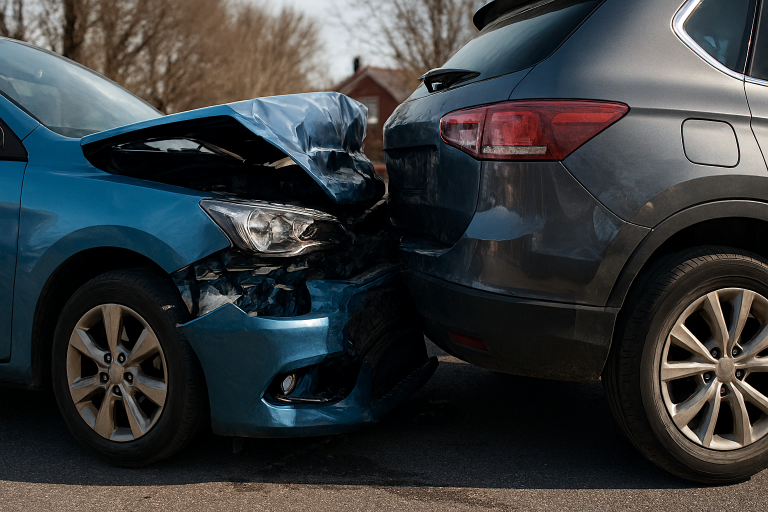Breathing clean air is not only beneficial for human health, but it is also a necessity to ensure the future growth and prosperity of every nation. The world desperately needs organized policies and more concerted efforts to mitigate pollution and its massive economic burden, as the Centre for Research on Energy and Clean Air (CREA) cautioned.
Hence, clean air now is more than ever before and is essential to our health and our planet. The world is in a frantic race to ensure that air quality is attained before it is too late by governments, scientists, and communities. A recent world report, associated with the United Nations, released on the International Day of Clean Air and Blue Skies, indicates the urgency with which the clean-air issue has been taken.
The Deadly Effects of Air Pollution
One of the most severe environmental issues that the world has ever had in the last few decades is air pollution. This is not a small statistic, but in 2021, the United Nations Environment Programme (UNEP) affirmed that it resulted in the premature deaths of an estimated 8.1 million people worldwide. Worse still, is the fact that out of these untimely deaths, 700,000 were of children under the age of five years.
Air pollution takes place not only in the air outside, as a result of emissions emitted by factories, vehicles, wildfires, and dust storms. It is also present in the indoor air, as a result of the emissions from solid fuels like wood or charcoal used for cooking.
Such particles, including the PM10 and PM2.5, can get deep inside the lungs, as far as the bloodstream, bringing severe health effects such as heart disease, stroke, pneumonia, lung and birth complications. Air pollution is not only harmful to health, but it is also not good for economies and the climate.
Latest Report and Challenges
The Centre for Research on Energy and Clean Air (CREA) released its report this year on the occasion of the International Day of Clean Air to Blue Skies, encouraging nations to move at a quicker pace to clean up the air. The theme, which is titled Racing for Air, emphasizes that air pollution incurs an estimated USD 8 trillion annually or 6 percent of the world economy.
The other eye-opener report by the Air Quality Life Index (AQLI) was the pollution of PM2.5. These comprise the tiny particles that harm the lungs and are the leading factor in the world that has been affecting human life expectancy. In 2023, air pollution was equally life-shortening as smoking.
In spite of the world’s development, many countries are still far from clean air. A recent IQLI report indicates that seven countries, such as Australia, New Zealand and Estonia, were the only nations in the world that complied with the World Health Organization (WHO) standard of PM2.5 levels last year. Indeed, only 17 percent of the global cities now achieve such air quality. This demonstrates that the clean-air race is by no means complete.
Climate change-promoting wildfires continue to increase air pollution on the planet. According to the World Meteorological Organization (WMO), the smoke produced by huge fires in such locations as Canada, Siberia, and the Amazon contributed to human-made pollution as much as many poisonous particles. WMO recommends that combating climate change and clean air protection should be addressed together.
Learn More and Join The Race
South Korea is also struggling to reduce air pollution. The Ministry of Environment is an integrated institution of policies and publicity of air quality. The National Institute of Environmental Research (NIER) enables research and monitoring of pollution levels in this country. There is also the contribution of local environmental bodies like KFEM (Korea Federation for Environmental Movements) in the formation of awareness and transmission of useful information.
The need to come up with solutions to curb air pollution has the power to save lives, raise human productivity and reduce poverty, among other benefits. Information, news, and policy activities related to air pollution can be found on various sites, including the Ministry of Environment’s website. K-eco may also helpfully provide sophisticated tools to test air quality and learn about government programs. There are also public platforms that gather addresses and local environment-related data.
The race is contributed to by your awareness, the ability to access local data, and your desire to act. While researching for environmental information can be tiresome, there is a Korean site that brings different topics together in one place to help citizens quickly and easily find the sites with air pollution updates. Also, the list containing the links aggregated by the site allows visitors easy navigation to other websites without searching.
The aggregated links help you to obtain information about the air quality in your locality/district with ease and learn what is being done to enhance it. The information is already helping to ensure that your health is safe through monitoring of the environment and acting on it, such as not taking a walk to exercise on days when the pollution is very high or using a purifier in a home.


